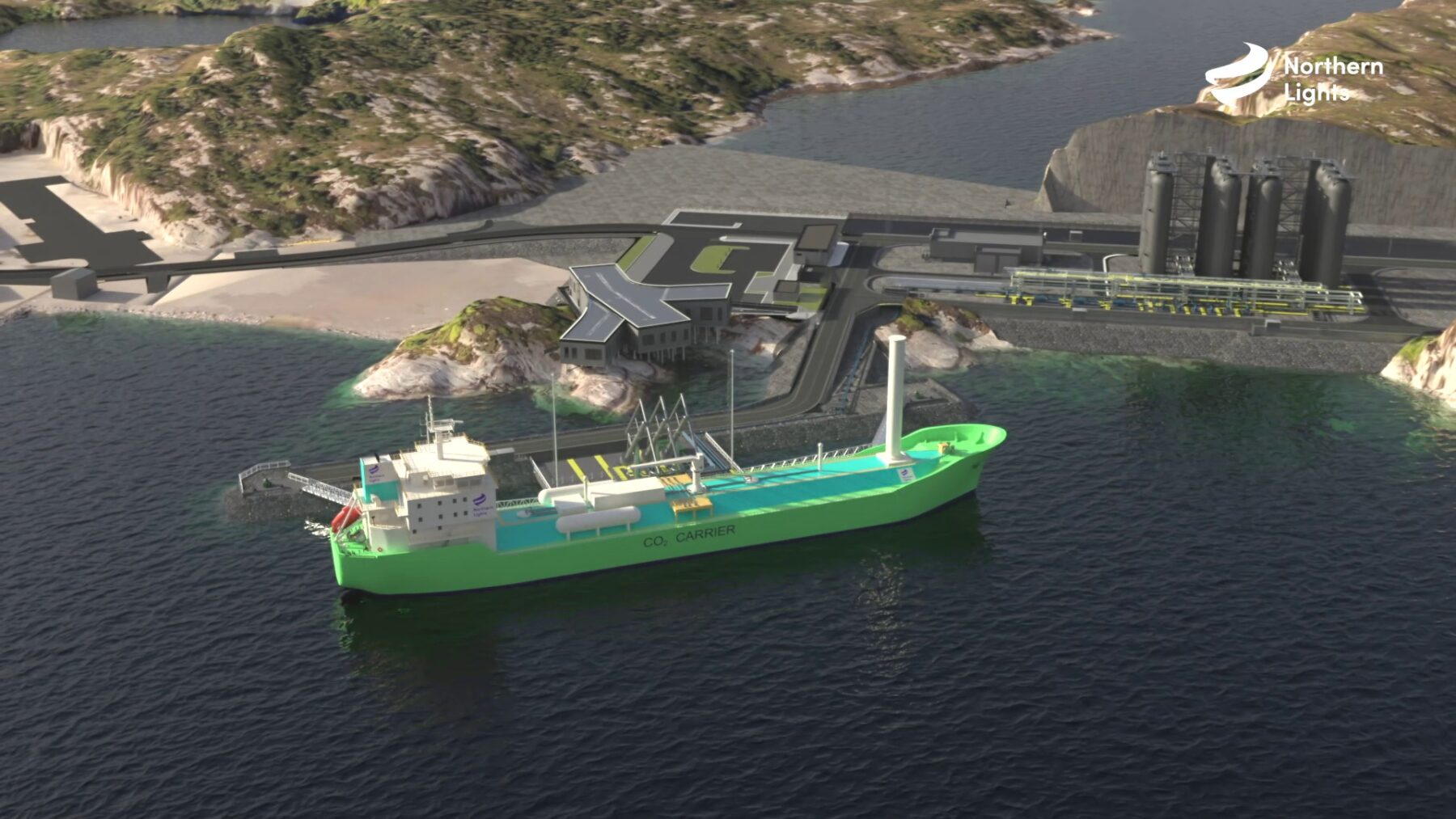ME-GI engines help reduce vessels’ own emissions to minimum; have potential to set new standard for LNG-fuelled ships carrying liquid CO2
Dalian Shipbuilding Industry Co. Ltd. has ordered 2 × MAN B&W 7S35ME-GI dual-fuel engines in connection with the construction of two 7,500 cubic-metre, liquid CO2 carriers for Northern Lights, the joint venture between Equinor, Shell and TotalEnergies. Each ME-GI engine will feature MAN Energy Solutions’ proprietary EcoEGR (Exhaust Gas Recirculation) system. Delivery of the 130-metre carriers has been set for mid-2024.

Northern Lights is responsible for developing and operating CO2 transport and storage facilities as part of ‘Longship’, the Norwegian Government’s full-scale, carbon-capture-and-storage (CCS) project. Northern Lights will create the first ever, cross-border, open-source, CO2 transport-and-storage infrastructure network, offering European companies the opportunity to store their CO2 safely and permanently underground.
Wayne Jones OBE, Chief Sales Officer and Member of the Executive Board of MAN Energy Solutions, said: “We are delighted with our role in this groundbreaking project. With the current focus in the maritime world on reducing methane slip, our dual-fuel ME-GIs will keep carrier emissions to a minimum in this project whose green credentials will be carefully examined. These vessels’ construction enables the revolutionary development of a flexible and efficient, European infrastructure for CO2 capture from industrial customers. I am convinced that the Northern Lights project has great potential for application across Europe.”
The newbuilding carriers will be used in the first phase of Northern Lights’ transport-and-storage-infrastructure development and are designed to transport liquid CO2 in purpose-built, pressurised cargo tanks. The dual-fuel ME-GI engines will mainly run on LNG, while other innovative technologies – such as a wind-assisted propulsion system and air lubrication – will be installed to reduce carbon intensity by around 34%, compared to conventional systems. The ships are the first of their kind and have the potential to set a new standard for CO2 shipping on coastal trading routes.
The Northern Lights project allows for further phases to expand capacity through future investments triggered by market demand from large CO2 emitters across Europe.
Norcem carbon-capture project
The Norwegian Government’s Longship project aims to demonstrate that carbon-capture technology can be applied to larger industrial plants and set a new standard for future industrial projects. The HeidelbergCement Norcem plant near Oslo will be the first to use the Carbon Capture Heat Recovery technology (CCWHR®) developed by MAN and Aker Carbon Capture from the summer of 2024 when it will capture 400,000 tons of CO2 annually, corresponding to 50% of its overall emissions. The gas will be compressed, liquefied and subsequently transported by Northern Lights by use of the new carriers to their onshore receiving terminal near Bergen in western Norway, from where a pipeline will lead to an underground storage location in the North Sea.
Dr Uwe Lauber, CEO of MAN Energy Solutions, said: "CO2 emissions are currently unavoidable in cement production with the sector accounting for almost 6 - 7% of the world’s carbon-dioxide emissions. This is why the cement industry is key on the road to a decarbonised future. We are very proud to be able to deliver such an energy-efficient solution for HeidelbergCement Norcem, which is the result of our successful pioneering work in the CCS field together with Aker Carbon Capture."
MAN Energy Solutions’ scope of supply for the cement factory includes an electrically-powered compressor train – type RG 63-7 with integrated CCWHR® technology – which allows the compression heat of the recovery compressor to be exploited. The steam generators cool the CO2 mixture between the compressor stages and generate steam that is in turn used for capture.